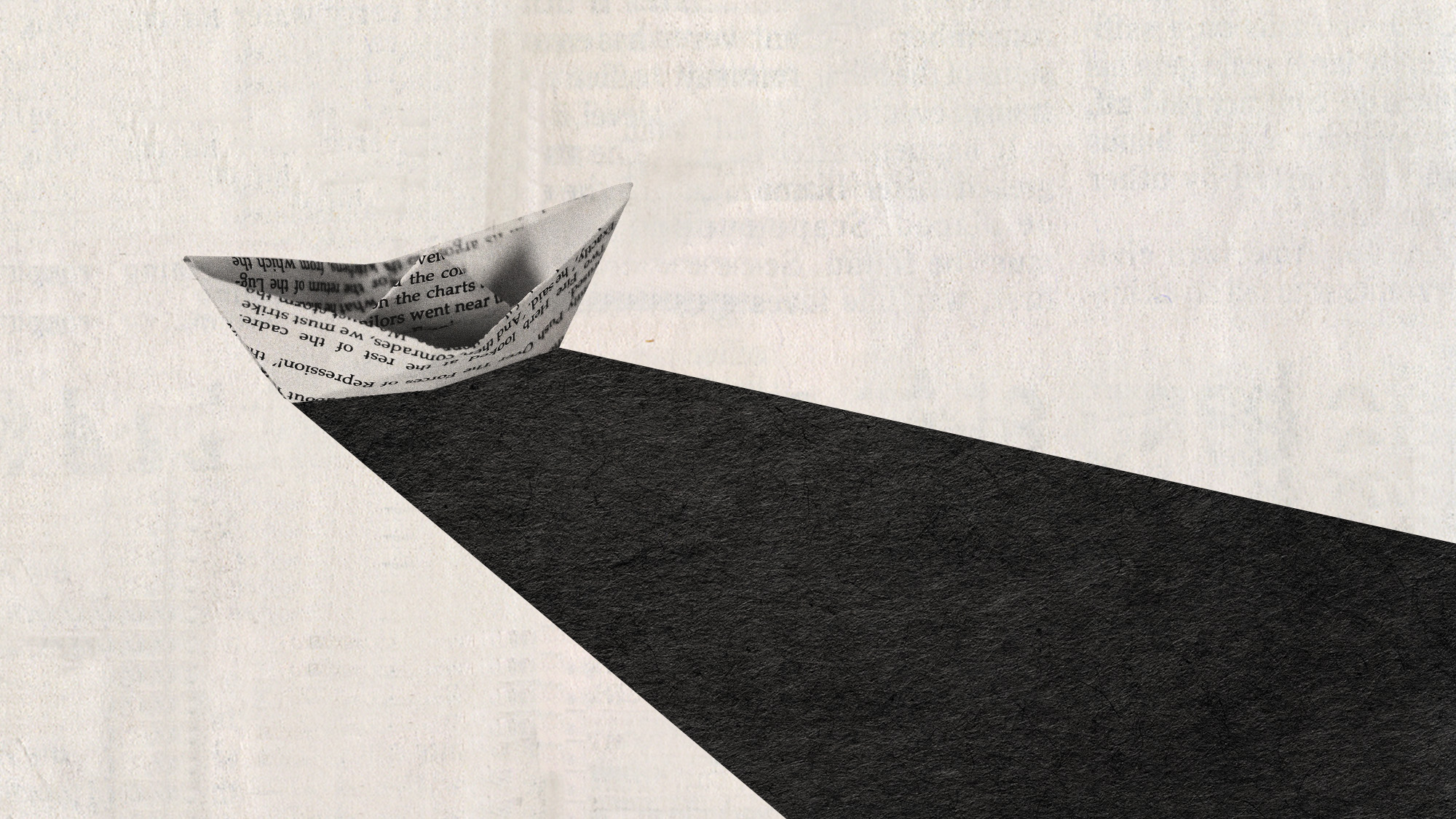The ‘sickening’ novel that predicted a migrant crisis 50 years ago
Jean Raspail’s The Camp of the Saints is being re-released in English

A free daily email with the biggest news stories of the day – and the best features from TheWeek.com
You are now subscribed
Your newsletter sign-up was successful
A controversial novel about migrants arriving in Europe could soon be on a bookshelf near you – but it was written more than 50 years ago.
Published in 1973, Jean Raspail’s “The Camp of the Saints” depicted an overwhelming “influx of migrants”, said The Times, and it’s now enjoying a new lease of life after endorsements from Marine Le Pen and Steve Bannon made it a “totem for the hard right”.
‘Savagely racist’
Raspail’s “depiction of the migrants” is “savagely, even gleefully, racist” and it’s “the most controversial novel” from a “serious” author in the past five decades, said the broadsheet. Even the “most militant of its admirers must admit” that it’s an “ugly book”.
The Week
Escape your echo chamber. Get the facts behind the news, plus analysis from multiple perspectives.

Sign up for The Week's Free Newsletters
From our morning news briefing to a weekly Good News Newsletter, get the best of The Week delivered directly to your inbox.
From our morning news briefing to a weekly Good News Newsletter, get the best of The Week delivered directly to your inbox.
It’s “become an object of reflexive condemnation”, said The Spectator, although many of those “condemning it have never read a word” of the book. In it, a million migrants from India land in the south of France in a flotilla of small boats. Other migrants start to arrive in Europe in search of a new life and the continent becomes divided and overrun.
The migrants are depicted as “diseased people who eat human faeces”, said The New York Times. They arrive in Europe as an “endless cascade of human flesh” like an “anthill slashed open.”
The story’s “wilder excesses, plotlines and ending stretch the limits of credulity”, said the Daily Mail, and it reads “like a war reporter’s despatch from the mouth of hell”. It’s a “brutal, frequently sickening read” with a “meaningless cascade of murders, breakdowns and atrocities”.
But it’s “prescient”, with its imagery of a “tragic flotilla, running aground on an idyllic coastline”, which has become a “sad reality”, and for how “accurately” it “predicted” that the West would be “tormented by liberal guilt and fashionable self-loathing”, and that the Europeans would “turn on each other”.
A free daily email with the biggest news stories of the day – and the best features from TheWeek.com
‘Hardly a runaway hit’
Raspail, who died in 2020 at the age of 94, is not a “worthless writer”, said The Times. He was the author of more than 30 “remarkable novels and travel books” and he “received many distinguished prizes”.
“The Camp of the Saints” was translated into several European languages but it was “hardly a runaway hit”, said The New York Times. It’s been out of print in English for years but it’s going to be released in English again, this time by Vauban Books, an independent American publisher.
A spokesperson told The Spectator that he expects that “some people will be very angry that we are bringing it out”. He said he expects that distributors may object to the title so “there may well be a battle ahead”.
Chas Newkey-Burden has been part of The Week Digital team for more than a decade and a journalist for 25 years, starting out on the irreverent football weekly 90 Minutes, before moving to lifestyle magazines Loaded and Attitude. He was a columnist for The Big Issue and landed a world exclusive with David Beckham that became the weekly magazine’s bestselling issue. He now writes regularly for The Guardian, The Telegraph, The Independent, Metro, FourFourTwo and the i new site. He is also the author of a number of non-fiction books.
-
 ‘Poor time management isn’t just an inconvenience’
‘Poor time management isn’t just an inconvenience’Instant Opinion Opinion, comment and editorials of the day
-
 Bad Bunny’s Super Bowl: A win for unity
Bad Bunny’s Super Bowl: A win for unityFeature The global superstar's halftime show was a celebration for everyone to enjoy
-
 Book reviews: ‘Bonfire of the Murdochs’ and ‘The Typewriter and the Guillotine’
Book reviews: ‘Bonfire of the Murdochs’ and ‘The Typewriter and the Guillotine’Feature New insights into the Murdoch family’s turmoil and a renowned journalist’s time in pre-World War II Paris
-
 How digital ID cards work around the world
How digital ID cards work around the worldThe Explainer Many countries use electronic ID to streamline access to services despite concern by civil rights groups they ‘shift the balance of power towards the state’
-
 What are digital nomads?
What are digital nomads?The Explainer Dozens of countries now offer remote working visas but the schemes vary and there are downsides too
-
 The Week Unwrapped: Nuclear testing, flat-hunting and the other megxit
The Week Unwrapped: Nuclear testing, flat-hunting and the other megxitpodcast Why are we only now learning about France’s atomic legacy? Is social networking changing the rental market. And why are migrants leaving the UK?